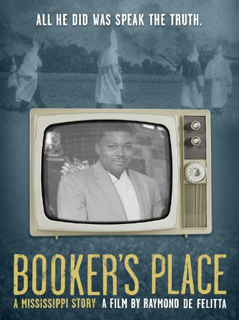 Film: Aftershock (2010)
Film: Aftershock (2010)
Director: Feng Xiaogang
Cast: Fan Xu, Jingchu Zhang, Chen Li
Genre: Art House/International/Drama
?When told only one child could be saved, my mother said, ?Save my son.? These words keep ringing inside my ears. Dad, It’s not that I don’t remember. It’s just that I can never forget.?
from Aftershock
?He who has gone, so we but cherish his memory, abides with us, more potent, nay, more present than the living man.?
Antoine de Saint-Exupéry
Getting to ?Forgive Me?
Most tearjerkers set you up by making you fall in love with the characters and then leading you by degrees into a spectacular tragedy. Aftershock manages to make you cry within the first 20 minutes.
How? By introducing themes so profound and universal and depicting them with such cinematographic sensitivity that our attachment to the characters and their plight is fast-tracked. Not an easy thing to do, but this scenario?the 1976 earthquake in Tangshan, China, so severe that the landscape was levelled and 240,000 people perished?may be the ideal context for this kind of plotline.
When Li Yuanni realizes that her husband has been killed and that her twins are buried in the rubble of their apartment building, she looks up from the chunks of wood and concrete and screams at the raining sky, ?God! You bastard!? The camera angle is from above, making her look small and helpless, covered in mud, bleeding, and with torn clothes. It’s an unforgettable image.
So is the image of Li Yuanni as she watches a bus taking away her young son, the only remaining member of her little family. She tilts slightly, like a puppet, and wears a stunned expression as she becomes smaller and smaller, both visibly and symbolically.
The film presents some pretty earth-shaking (sorry) issues, including the experience of loss, the valuing of male children over female, deep-seated anger toward God and human beings, ethical dilemmas, and the proper conditions for forgiveness.
Yes it appears maudlin?the tears practically fly from the characters? eyes and there are venting scenes that look to Westerners like emotional debauchery?but this kind of intense sentimentality really is integral to culture in China. At least for me, it didn’t come across with the sense of carefully orchestrated sappiness we find in so many Hollywood flicks.
I was expecting an element of propaganda, but there’s only a little. The People’s Liberation Army, for example, describes itself as ?a big revolutionary family.? China is presented as being quite warm and fuzzy, with no sign of the human rights abuses endemic there.
But I assume that this is more a case of selective representation than of whitewashing. I’m no expert but the film does jibe with a lot of documentaries?even Western documentaries?I’ve seen about human interaction in China. There is intense attachment among family members, and even a child leaving home is a tragedy for which no one seems prepared.
At the same time there’s a tremendous warmth among the people and a readiness to dote upon and protect and indulge children and the elderly. There’s also a sense of urgency attached to protecting, maintaining, and restoring relationships.
The moral is that even when we’re forced to choose the lesser of two evils, we’re still not off the hook. Fair or not, like it or not, we must bear responsibility for our decisions and ask forgiveness in order for loving relationships to resume.
Aftershock fulfills seven of the Mindful Bard’s criteria for films well worth seeing: 1) it is authentic, original, and delightful; 2) it poses and admirably responds to questions that have a direct bearing on my view of existence; 3) it is about attainment of the true self; 4) it inspires an awareness of the sanctity of creation; 5) it displays an engagement with and compassionate response to suffering; 6) it gives me tools of compassion, enabling me to respond with compassion and efficacy to the suffering around me; and 7) it makes me appreciate that life is a complex and rare phenomenon, making living a unique opportunity.


